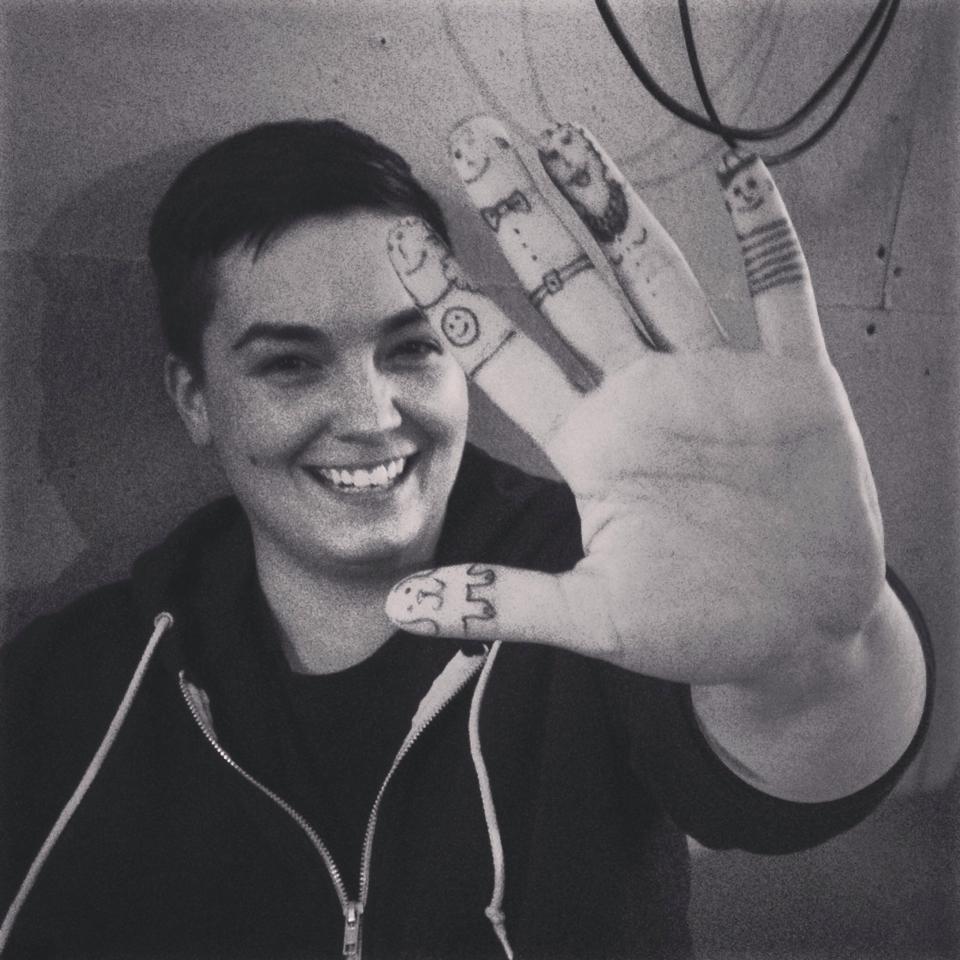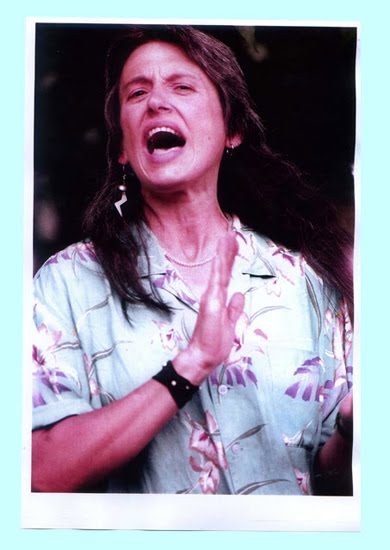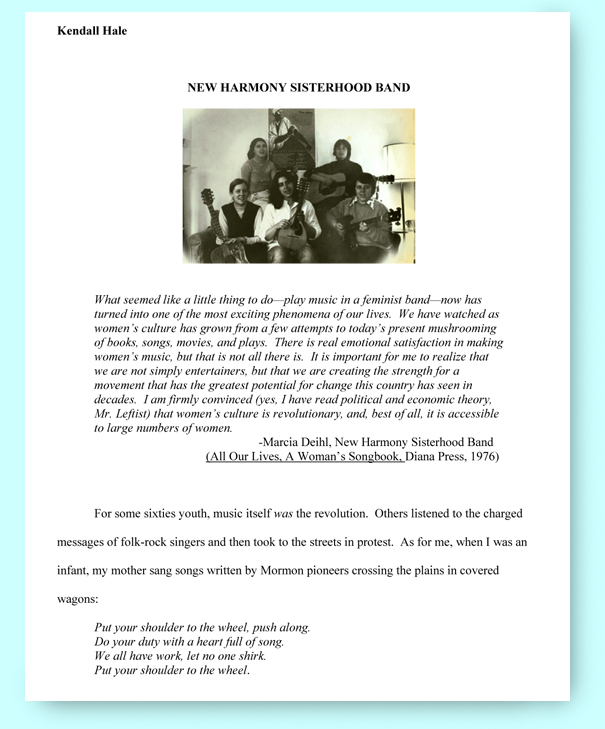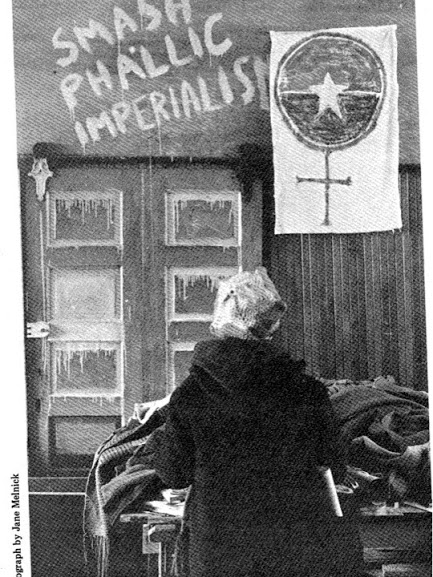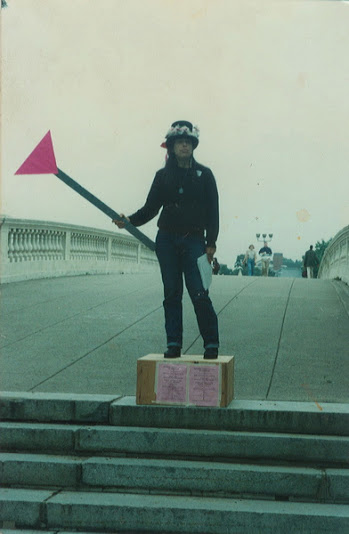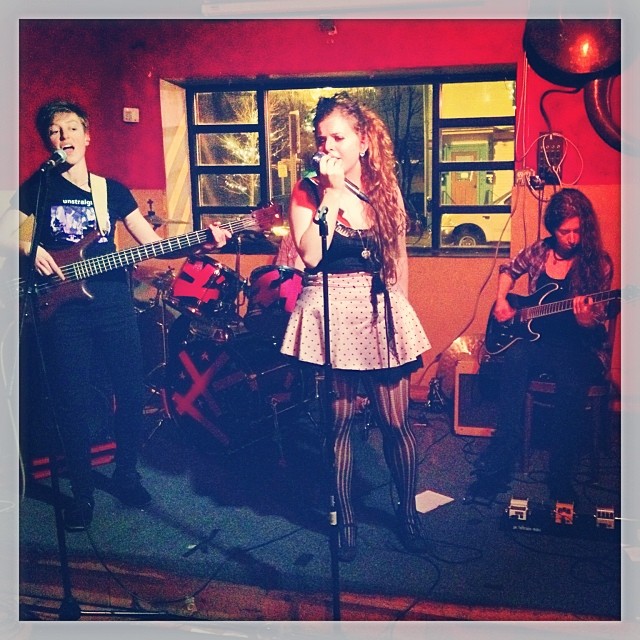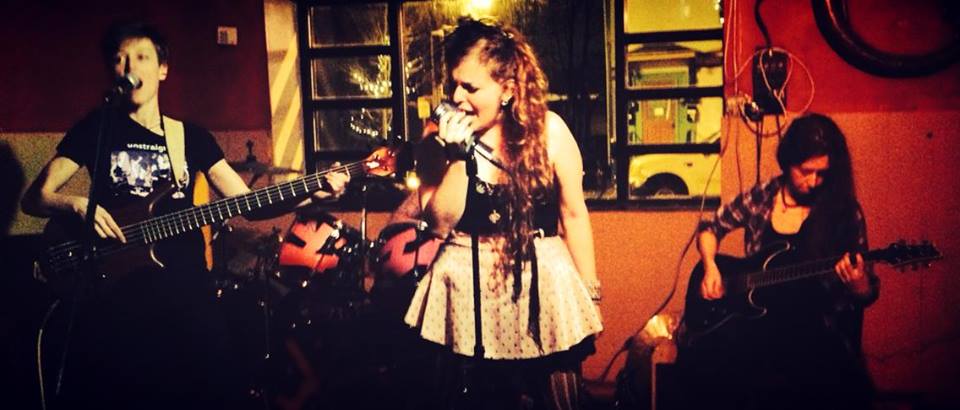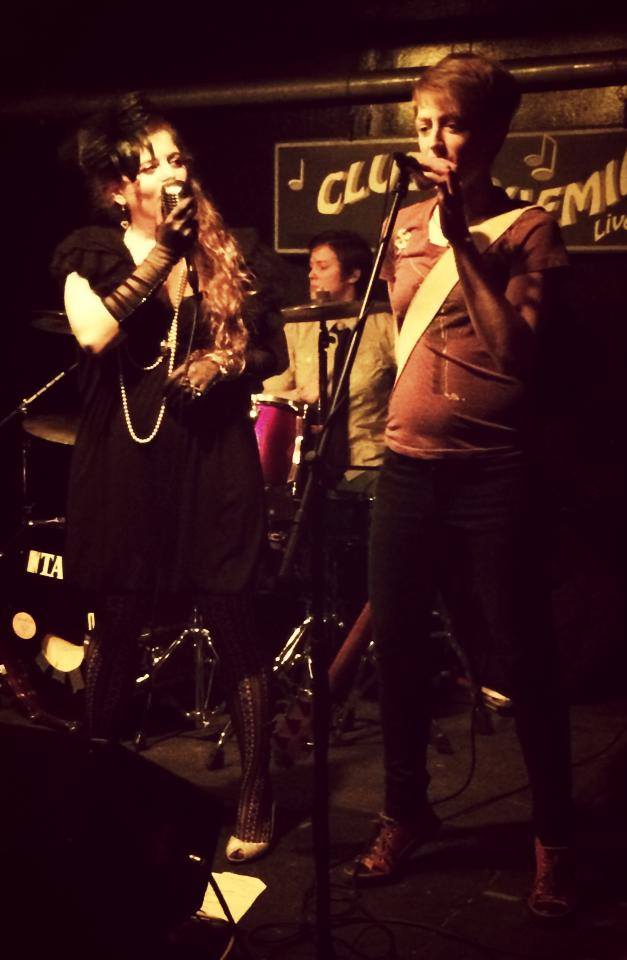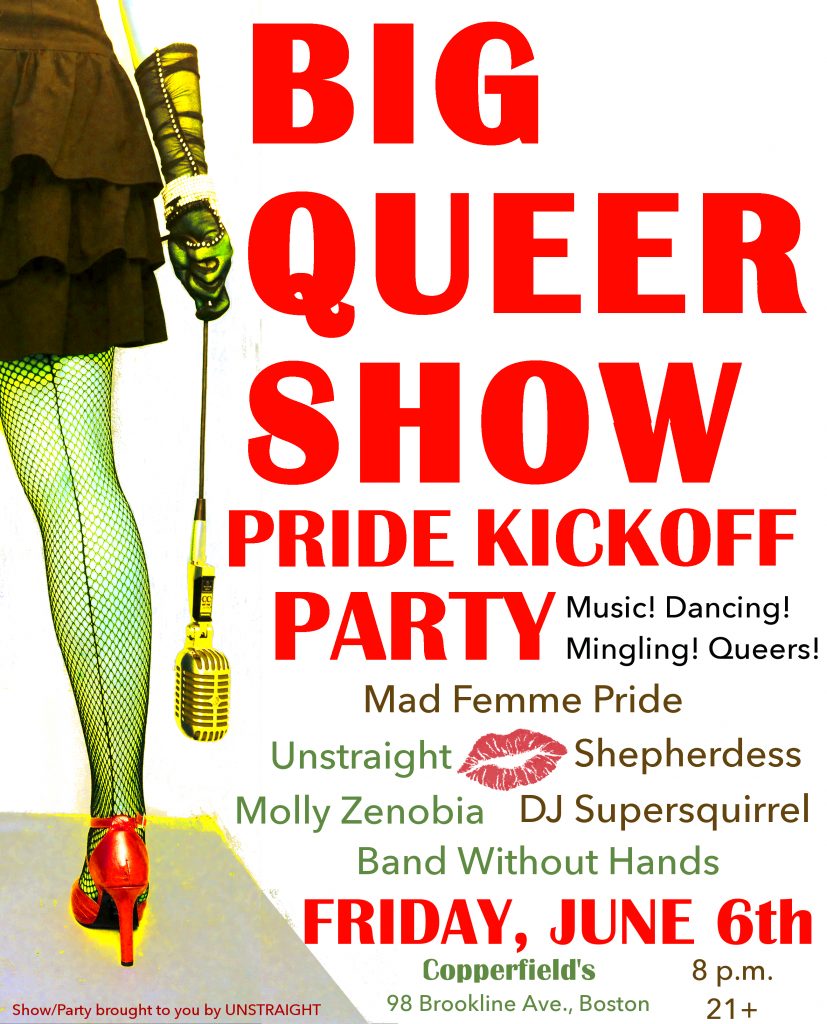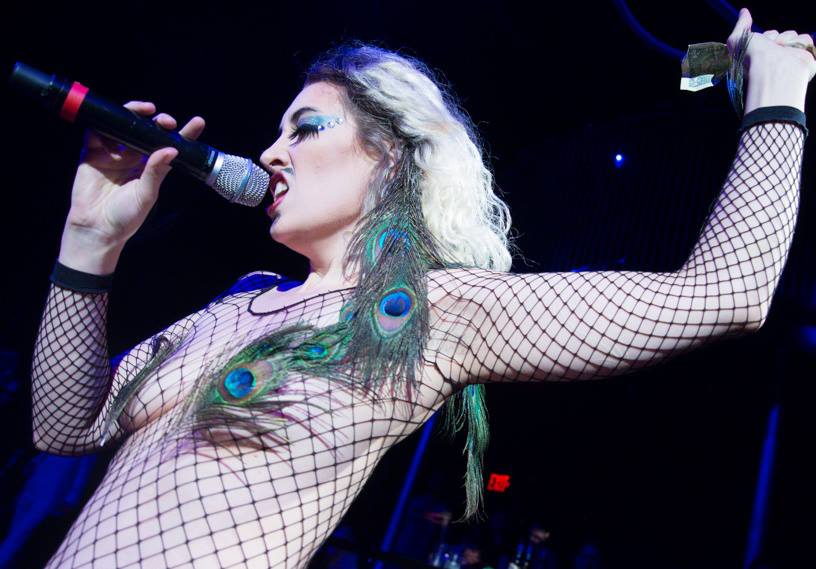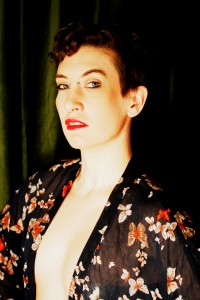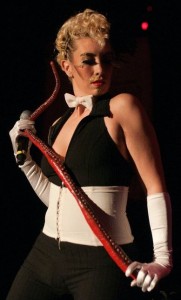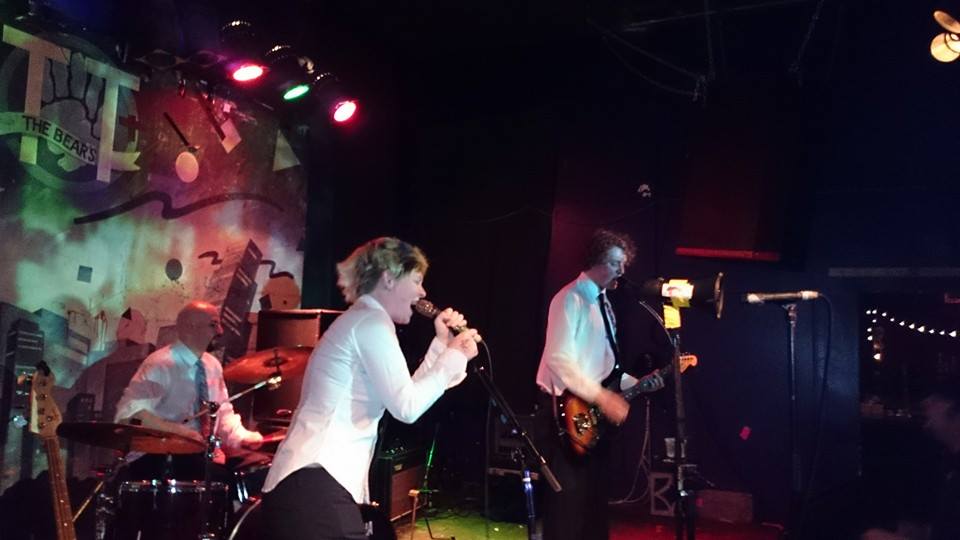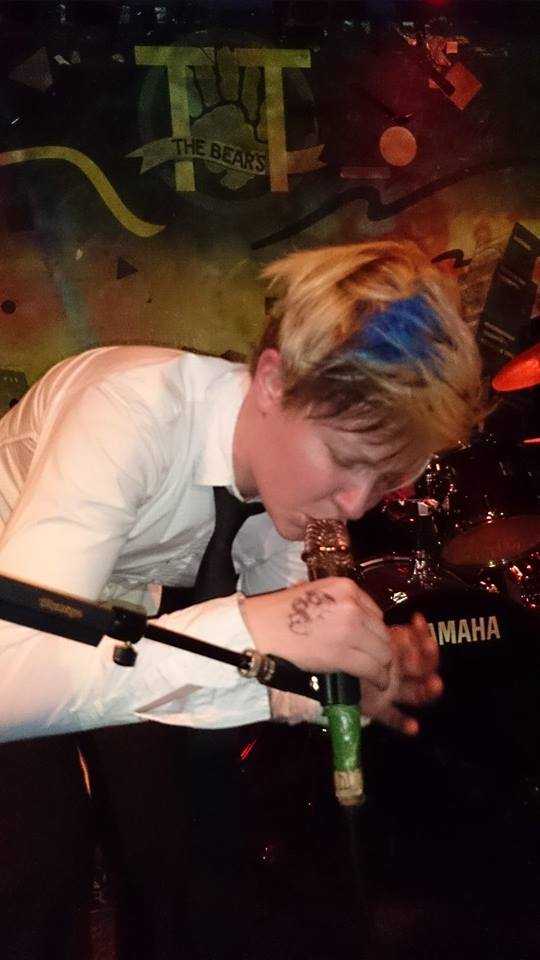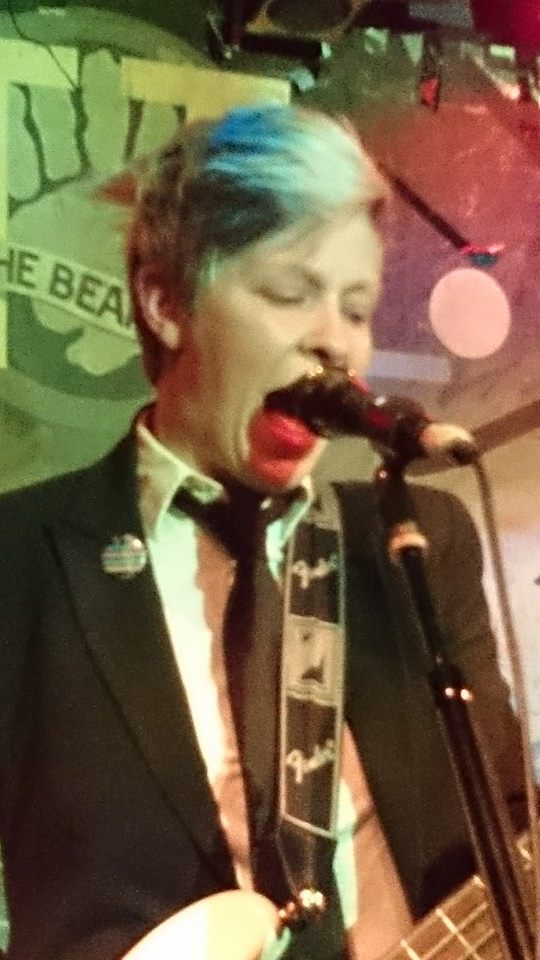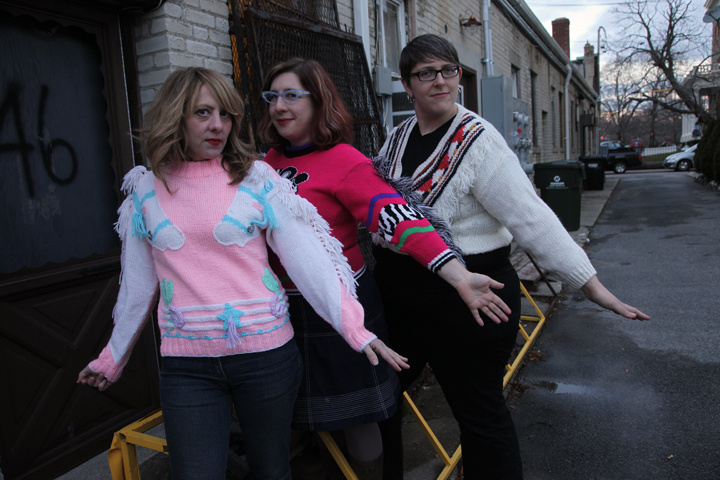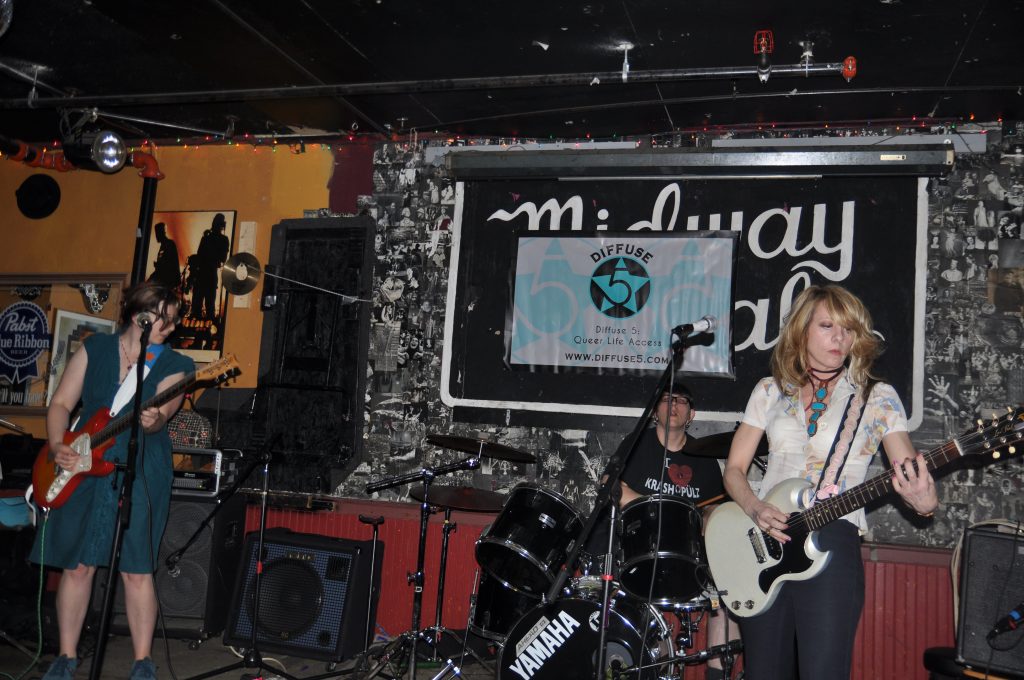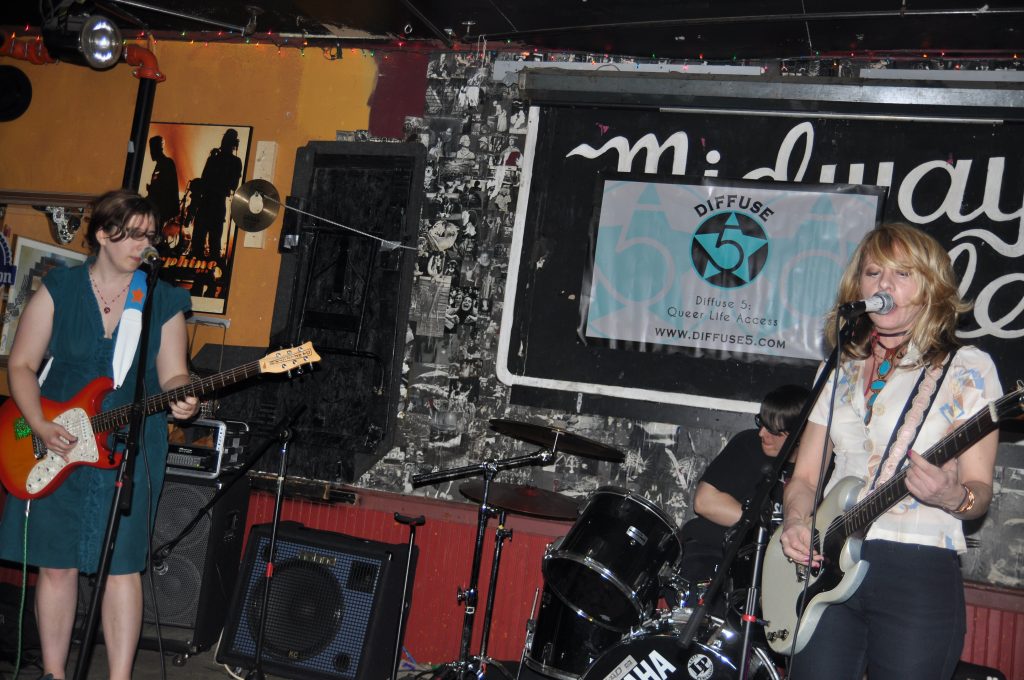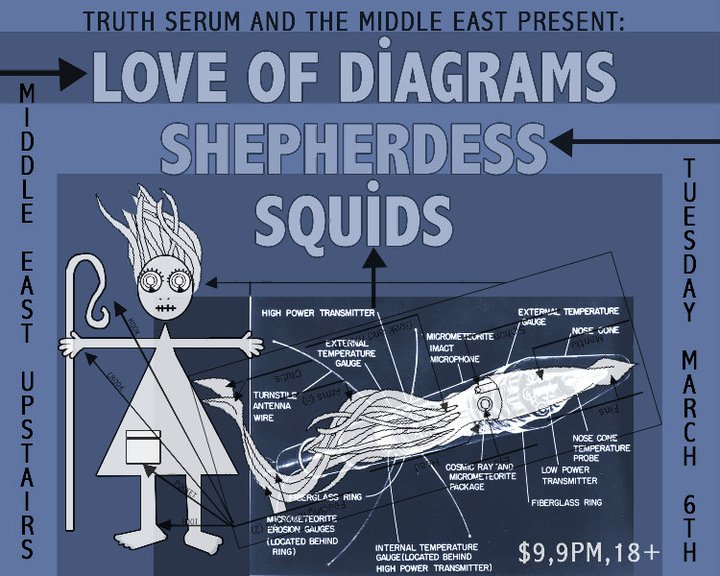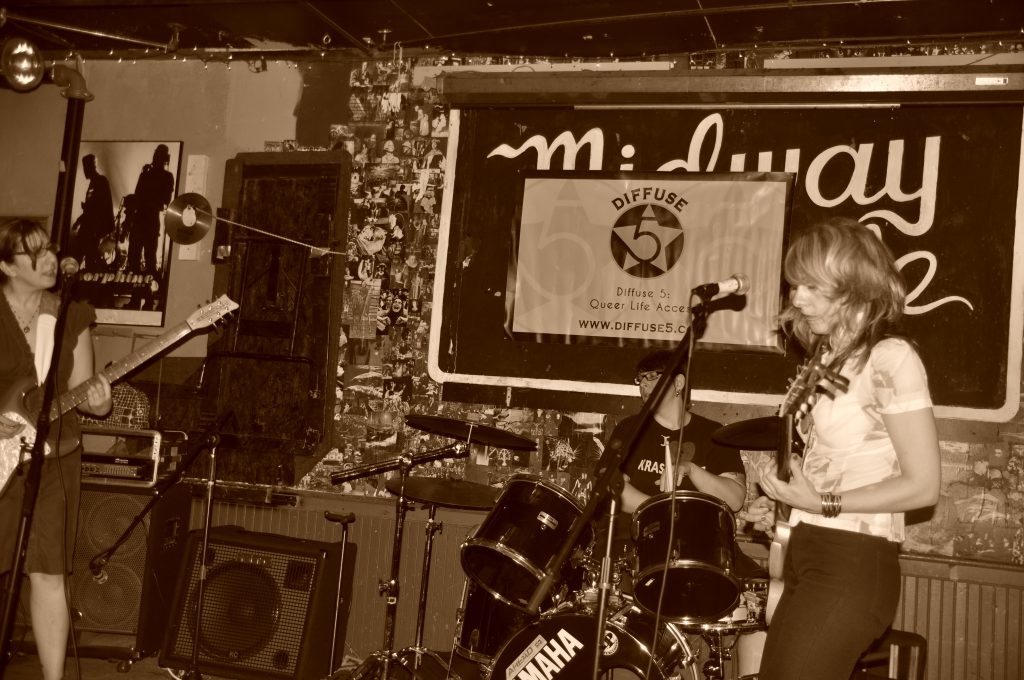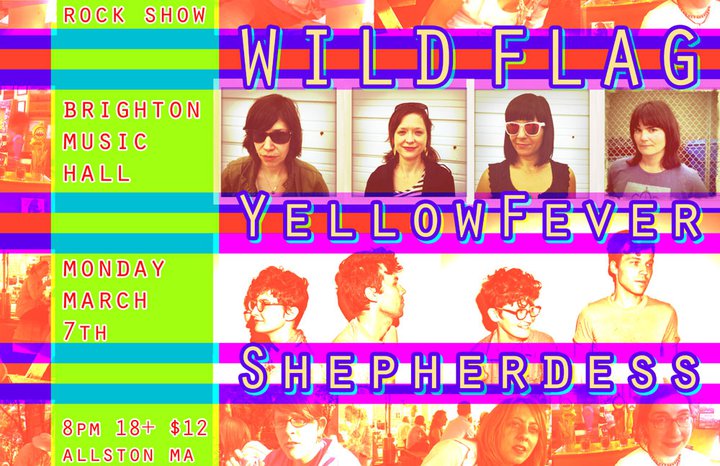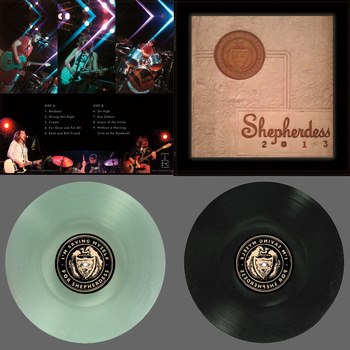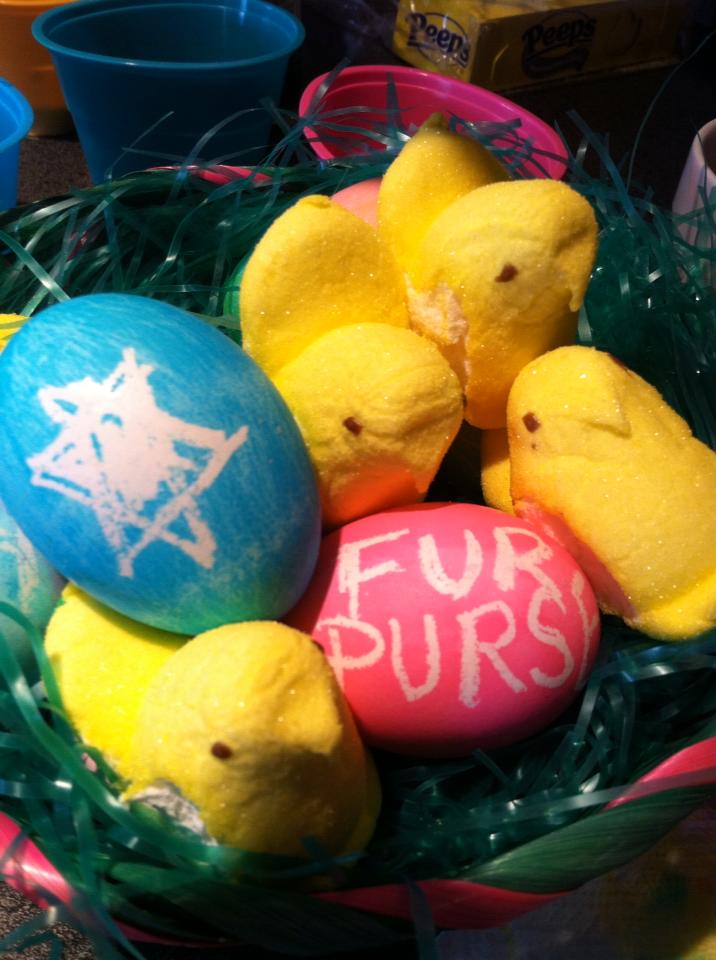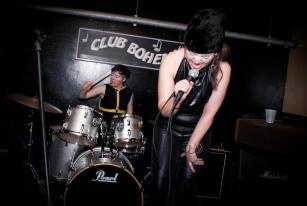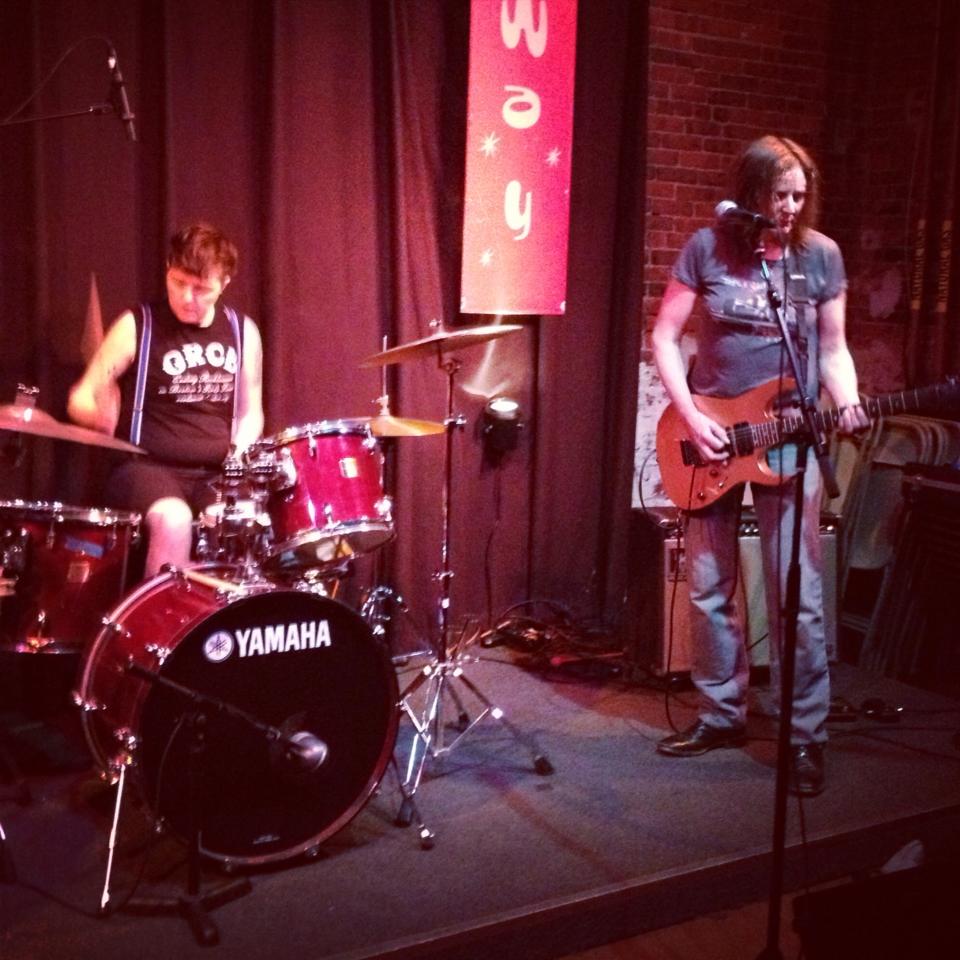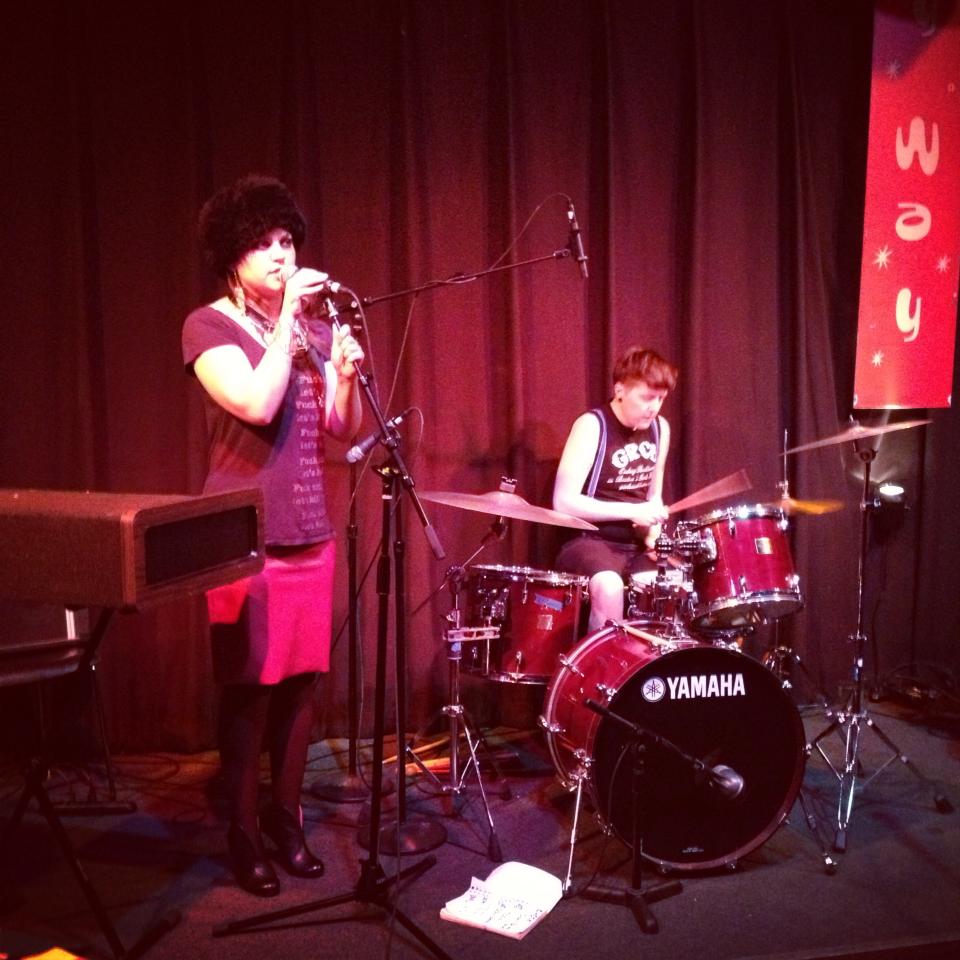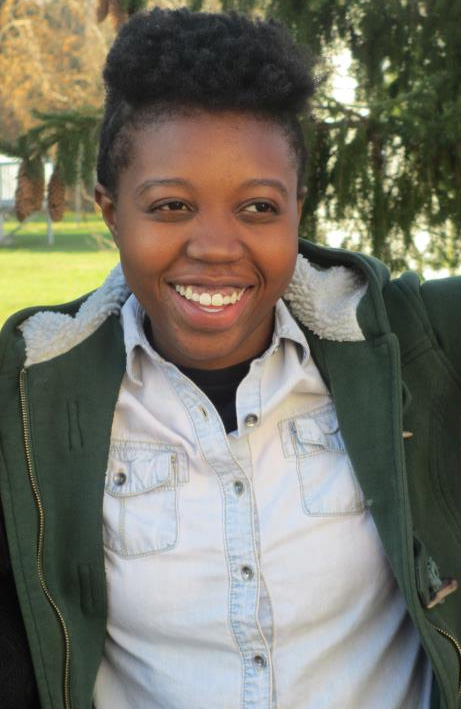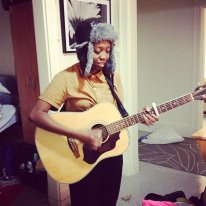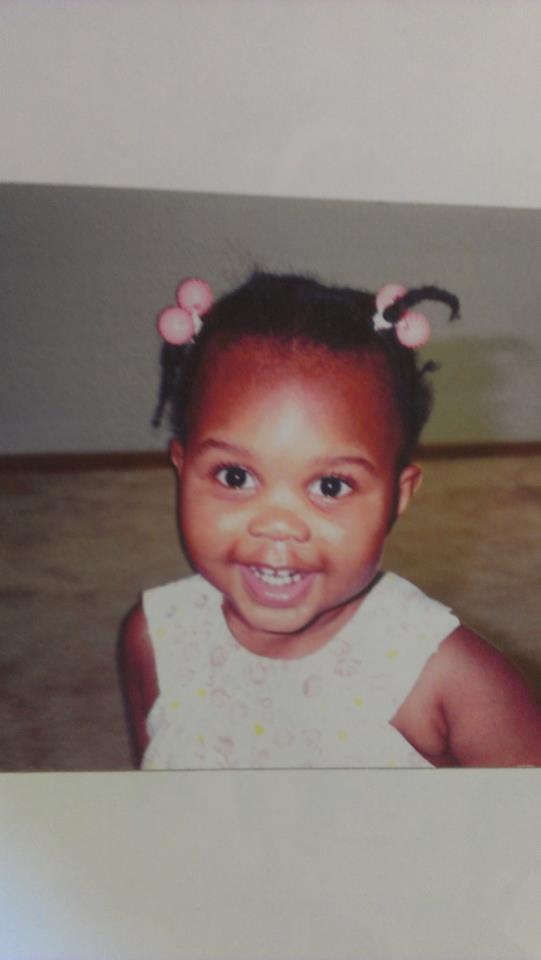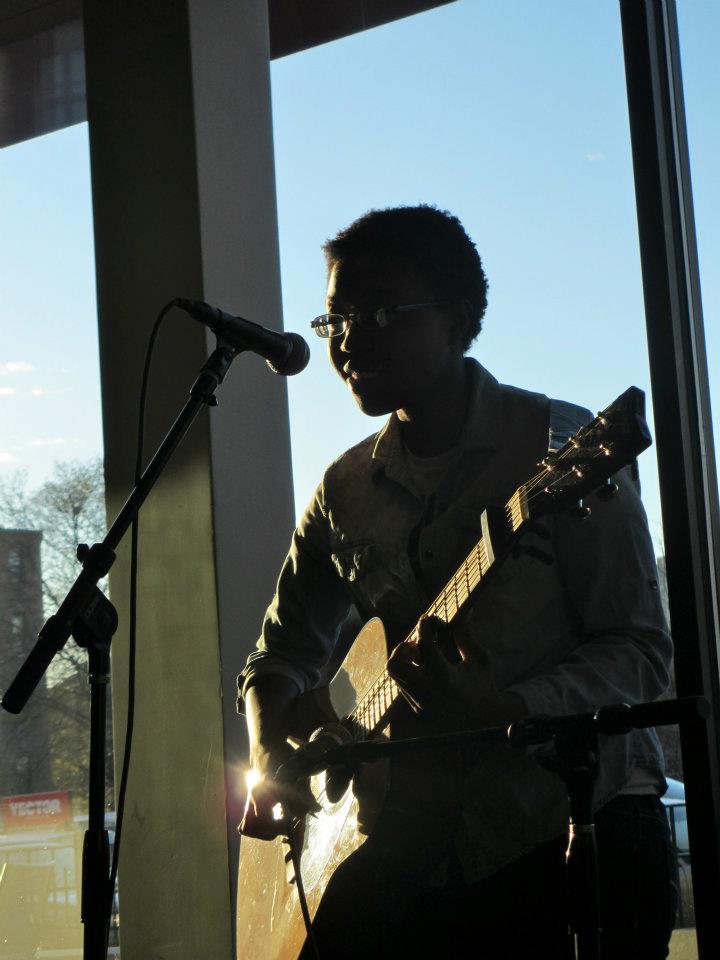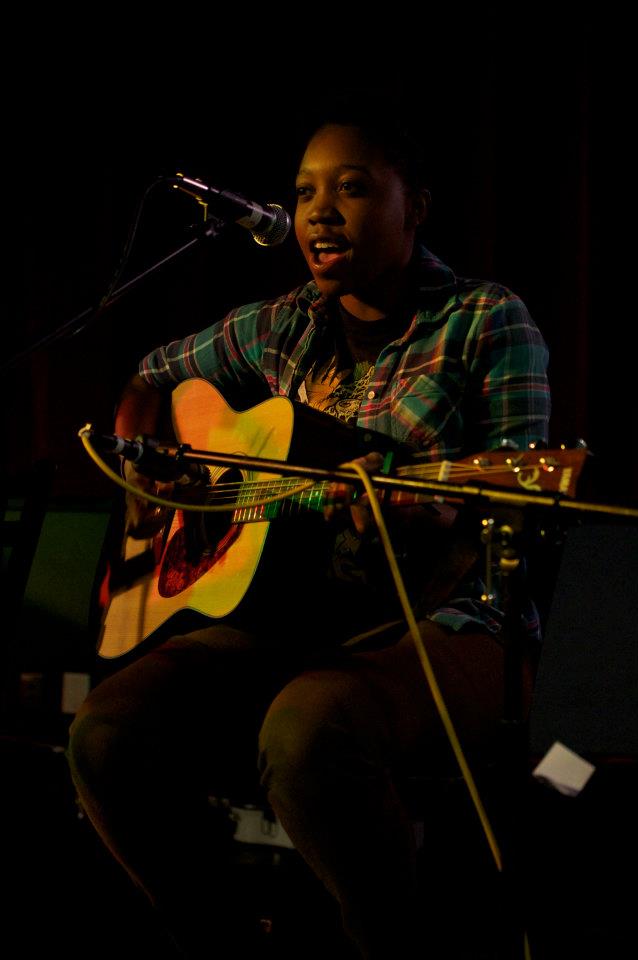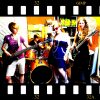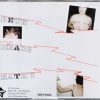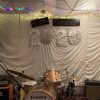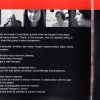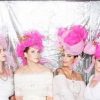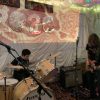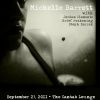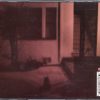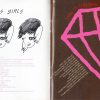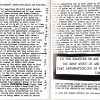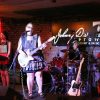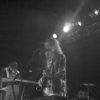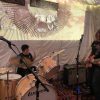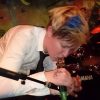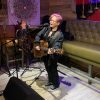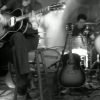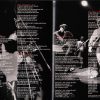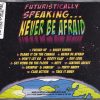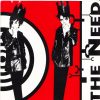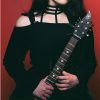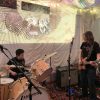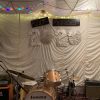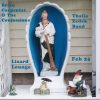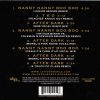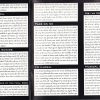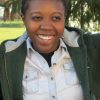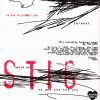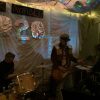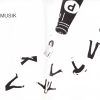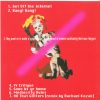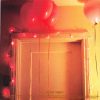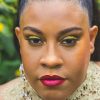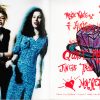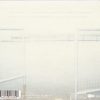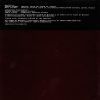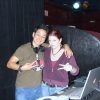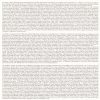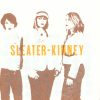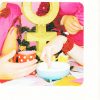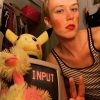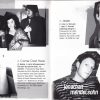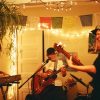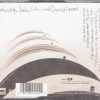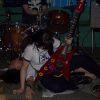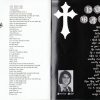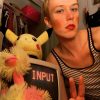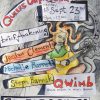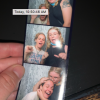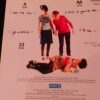Thrust Club is a four piece band hailing from Boston, which band member Sally Bunch describes as:
Thrust Club’s sound is a garage dance party where everyone is invited—a kick-drum that lifts you out of your seat, crunchy guitar chords under a layer of keys that’s sometimes smooth, sometimes ominous, and vocals that coo, scream, and everything in between, warning and complaining about but also celebrating the experience of being a woman. Thrust Club formed in February 2012 at Ladies Rock Camp, a 3-day fundraising event for Girls Rock Campaign Boston where women pick up instruments they have likely never played, form bands, write a song, and perform it live. After rocking the showcase at TT the Bear’s with “In Thrust We Trust,” singer Bethany Leavey, keyboardist Bonnie Joyce, drummer JC Climent, and guitarist Sally Bunch decided they were having too much fun to call it a weekend.
In spring 2012, they began practicing in a JP basement and pulled together a 5-song set to play at their first show, at the Middle East Upstairs in July 2012. Since then, Thrust Club has performed at Great Scott, the Midway, Milky Way, O’Brien’s, Precinct, and elsewhere, and in July 2013 released the EP Greetings from Mt. Thrustmore, available by download at http://thrustclub.bandcamp.com/. All members volunteer at GRCB’s summer sessions for Girls and Ladies Rock Camp, and believe in demonstrating and promoting girls’ and women’s to express themselves through music and other means.
The ladies answered some questions for us about Boston, queerness, women, and rock n’ roll.
What brought you to Boston?
Bethany: I was born and raised in the Boston suburbs and went to college at Northeastern University. With the exception of a short six-month stint in Chicago, I’ve never lived anywhere else. I’m what you’d call a lifer 🙂
Bonnie: My family moved to Ipswich when I was 16 and I bopped around throughout Massachusetts then finally moved to Jamaica Plain when I was 25. My brother’s girlfriend at the time had a room in her apartment that needed subletting, and I had a wad of cash in a tissue box rather than a bank account. I stuck around!
Sally: I came here in the 80s to attend BU and after graduation I made Boston my permanent home. I knew I wanted to attend college in a city, to be near cool radio stations, clubs, and bands, though I didn’t start venturing out to the Rat or TTs and other clubs until I was a senior.
JC: I moved here on a whim with my boyfriend 12 years ago for absolutely no reason other than we had a brief discussion one night where I said, “I’ve always wanted to live in Boston…” and he said, “me too…” and then we just did it! We move here in the middle of a blizzard in February 2003 with $500 savings, no job prospects and no friends here. I think we’ve done pretty well for ourselves.
Have you experienced a strong scene for queer women in the city in terms of music/performers etc?
Bethany: Ladies Rock Camp Boston and Girls Rock Campaign Boston have introduced me to the HUGE number of queer women involved in the Boston music community! It seems like I hardly ever go to or play a show where there isn’t at least one queer woman on the bill.
Bonnie: Thrust Club has been living in a bubble of it for the past two years, so I’ll have to say yes, because it’s something we’ve gravitated towards. We’ve been mentored and supported so well by the Girls Rock Boston community. We’ve played exactly one show where there weren’t women in any of the other bands on the bill and I’d like to keep it that way.
Sally: I do, and feel part of this growing community of bands I go see and play on the bill with, including Fur Purse, Weather Weapon, Viva Gina, Sleep Crimes, Kitchenettes, etc.
JC: I hadn’t paid attention until I attended my first Ladies Rock Camp (LRC) in February of 2011 and met the most amazing group of women I have ever known! I have since done LRC twice more and now consider myself a retired camper. I still volunteer for LRC and Girls Rock Campaign Boston (GRCB), where I teach bass and coach bands.
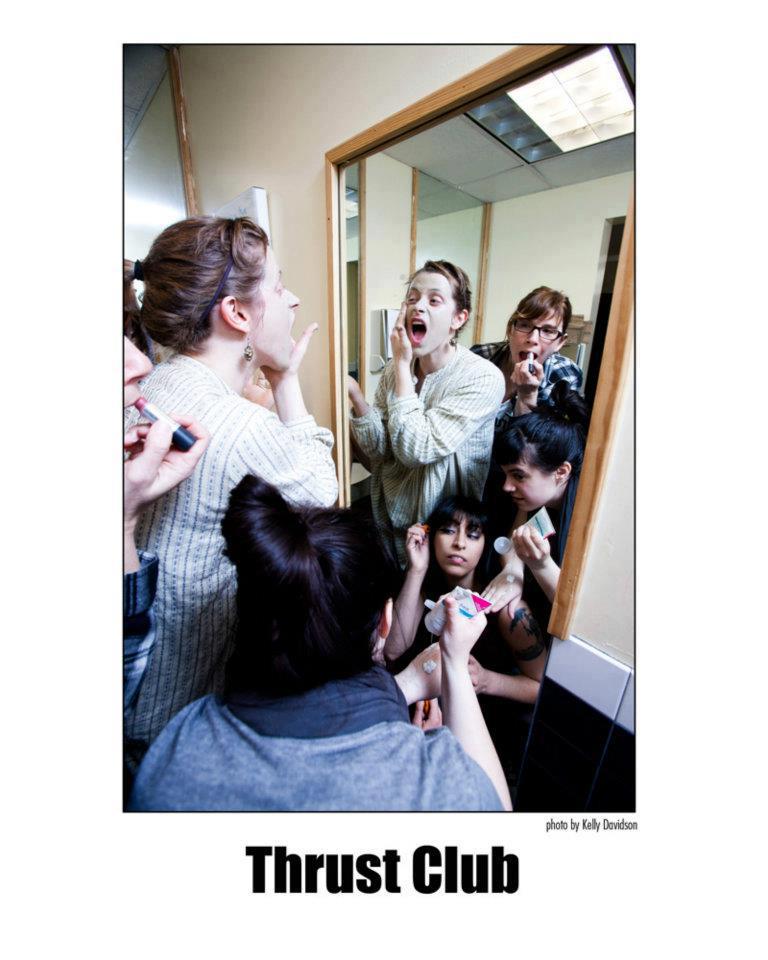 Do you have any sense of a history of a queer scene here or is the past a faded memory?
Do you have any sense of a history of a queer scene here or is the past a faded memory?
Bethany: Like Bonnie said, the queer scene wasn’t something I really knew a whole lot about until I became involved in GRCB/LRCB. I was aware of a handful of queer women in the folk and singer/songwriter scene, but I didn’t really have a sense of a queer presence in the Boston rock scene until the last few years.
Bonnie: I don’t have a sense of it, but I wasn’t so keenly paying attention until a couple years ago.
Sally: I don’t have a sense of it; there may have been stuff going on that I wasn’t aware of, particularly in the nineties and early 2000s when for various reasons I wasn’t paying attention
JC: There is definitely at least a mini queer scene happening here! Bands like Viva Gina and Unstraight are definitely holding it down.
What made you decide to join a band?
Bethany: I joined my first band in high school (Holla, LittleMatchGirl!) I’ve always felt like being in a band was an inevitability for me. I knew that I wanted to make music, but I didn’t know quite how to go about it. I was lucky enough to have a few friends who felt the same way, and we decided we’d figure this whole “writing music” thing out together. We were an all-girl band by default because none of the guys we knew wanted to play with us.
Bonnie: Man! For a while there I was going out to see bands play like every dang night. I knew I wanted to do it but I had this really limited view like all the people who were in bands probably started out when they were wicked young or were so much more talented than I could ever be or whatever. I was hanging around with Radio Control and Streight Angular a lot, both bands with lady drummers–Kristina Otero and Theresa Polk, and was really inspired by them. Kristina blew me away with this story about playing a show on a Brookline Community Access TV show after having only a very brief experience of playing drums. My memory is fuzzy but it was something like a few weeks or months. (NOTE: I have contacted her asking for details but it’s early on a Saturday morning so I haven’t yet heard back)
When I heard about Girls Rock Camp I had a reaction you hear about a lot of women having, like, “Ugh! I wish they’d had this when I was a kid and then I’d be living in this alternate reality where I’m in a band!” And then the next year they ran it for adult ladies but I was too shy to do it. I became friends with Charlotte, Stud, and Tam, who were involved as campers and counselors and they urged me to sign up. I’m so lucky Thrust Club wanted to stay together!
Sally: I had these opportunities through Ladies Rock Camp that I never thought I would have. I just thought I’d come away with some friends to see other bands with. But in 2011 two of my rock camp band mates invited me to join the band they were forming. And then the following year Thrust Club wanted to keep going, and though at the time I didn’t really think of myself as a guitarist in the long term, I’m glad we’re still at it.
JC: After my first LRC, I realized that I wanted to start a band but didn’t really know how or whom to ask. I was already in Adam PC, but I wanted my own thing too. When Thrust Club formed during my second LRC in 2012, I got extremely lucky to join a band where all the members were local, we were making music we were all into, and decided to keep going!
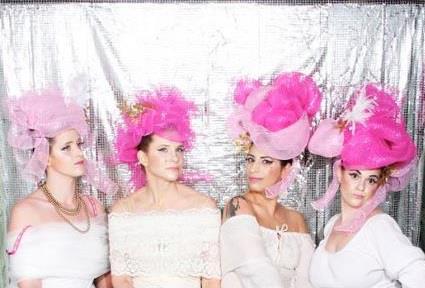
Are there any artists that you look up to or who have inspired your own music?
Bethany: I would not be the vocalist that I am today without Monique Powell of Save Ferris and Beth Ditto of Gossip. Bif Naked, Gwen Stefani, and Carrie Brownstien taught me how to yelp and twist my voice and, of course, Kathleen Hannah showed me how to scream my head off.
In terms of songwriting, I really admire the poetic simplicity of Jonathan Richman and The Modern Lovers, Kimya Dawson, The Moldy Peaches, The Mountain Goats and The Ramones.
The Ramones and Velvet Underground have served as a general inspiration for me – They didn’t have any special musical training, they just had instruments and a desire to make noise.
Bonnie: Like Sally, a lot of my longtime listening has been to dudes. Whatever, I’ll name them. I love Bruce Springsteen, Jonathan Richman and The Modern Lovers, The Mountain Goats, The Magnetic Fields, The Kinks. Right now I’m trying to figure out how to make my keyboard to make sounds like The Doors made.
Since becoming a lady in a band I’ve become more lady-centric in my tastes. I’ve loved Tegan and Sara forever and I’m super enjoying this pop turn they’re taking these days. We can sound pretty Riot Grrrl but I’ve only started listening to a lot of those bands once we’d already begun doing it. We just like yelling, so that’s how it turned out. There’s a lot to yell about!
A lot of my idols are Boston women in bands who I’ve actually had the chance to interact with, and who over time have become my peers.
Sally: I must admit that most of the music I listened to when I was younger was created by dudes, with a few exceptions including Tina Weymouth, Chrissy Hynde, and of course Patti Smith. I guess I identify with Patti the most because she’s a writer who stumbled into playing music. Going back now and listening to some of the female bands like Sleater Kinney made me realize how they are influencing me know. And I have guitarist envy every time I see Marisa Paternoster play.
JC: When I was about 6 or 7, I wanted to sing like Debbie Gibson! But I’ve also been into Joan Jett, Cyndi Lauper, Blondie, and Heart for as long as I can remember. Kathleen Hanna has been a huge influence on me ever since I discovered Bikini Kill around the age of 16. Kim Deal is my biggest bass inspiration and Janet Weiss is my biggest drum inspiration! And I’ve had a crush on Carrie Brownstein since high school.
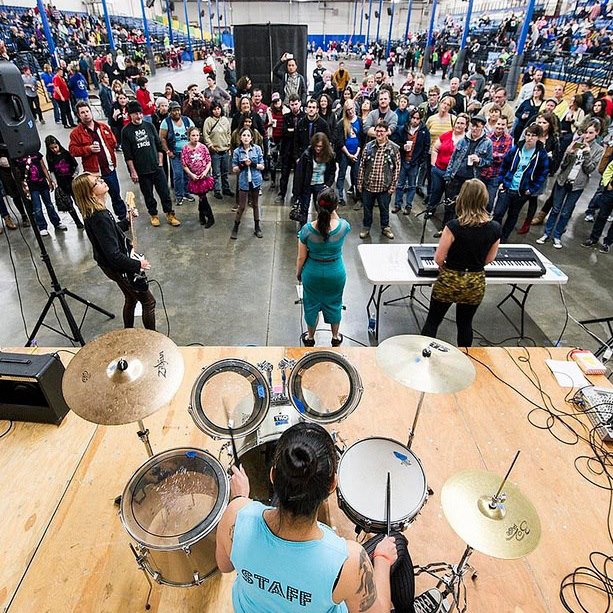
Do think things are getting better for queer female performers or are there still barriers to overcome?
Bethany: There are always barriers to overcome, I think, but it seems like things are getting better. There is definitely a growing queer female presence in the Boston music scene with performers going out and supporting each other.
Bonnie: I hope so, because it’s something that we’re actively trying to achieve. You’ve got to do a lot of good stuff to edge out the bad stuff. There’s nothing like a shopping trip for your gear to remind you that discrimination still exists, though.
Sally: I imagine they are, though I’ve only been at it for a couple of years and we’re in a progressive city and part of this amazing, supportive community.
JC: Things can ALWAYS get better for females and for queers everywhere! But I think as long as we have each other’s backs and continue to nurture and support our scene, shit is good.
Are you in any other bands?
Bethany: In addition to Thrust Club, I front Boston riot-doom band Sleep Crimes. I also have several ongoing side projects: The Sitcom Moms, my acoustic, punk rock, mashup cover band with my hetero lifemate (and former LittleMatchGirl bassist ) Eve Gravel, Das Oopsie, a ukulele duo with Rainy Logan of Eye Witness/Rotating Strawberry Madonna, and Muscleshucker, Sleep Crimes’ acoustic corporate events alter-ego.
Bonnie: Not right now, but I would be open to it. In 2013 I played bass in a second Ladies Rock Camp band, a hip hop band called Slam Juice. We had a mere 3 days of bliss and sort of tried to stay together after camp, but it didn’t happen. Ladies if you are reading this, know that I still love you and would jump at the chance to reunite.
Sally: Until last summer I played bass in another band, Seamstress, with two other women from my LRC band and another friend on accordion. We had a unique sound and I was proud of what we accomplished those two years we were active.
JC: I am also in Adam PC, where I play bass and some percussion, as well as do back-up vocals.
What has been your proudest moment as a member of a band?
Bethany: Oh my gosh, so many! I don’t think I could ever pick just one. My very first show with my very first band was huge for me. It sort of felt like we were pulling off this huge ruse, like “Oh my God, they actually think we’re a BAND?!?!?” Playing NYC on Thrust Club’s first band-iversary was so amazing. I was standing on stage thinking “…A year ago, we didn’t exist, and now we’re recording and EP and playing Brooklyn!” It is also the most amazing feeling to have people singing the words of your song back to you. I don’t think that will ever get old. AND HOW COULD I FORGET OPENING FOR JD SAMSON & MEN?!?!?!? That might be my biggest fangirl moment.
Bonnie: This is a really tough question, because there have been so many and I always feel so lucky to have them. Sorry, Tina, I can’t pick a single proudest moment so here’s a list. Playing our first show at the Middle East Upstairs was a huge honor. Being asked to open for JD Samson & MEN was another thrill, and I tip my hat to our drummer for having the guts to send them our music when they put out a call. JC is a promotional dynamo. Our first band practice after we got the news, we kicked things off with a group squeal. I was a nervous wreck at the show itself and could barely speak to JD Samson, but I’m proud I managed to eke out a thank you. Playing the TomTom/GRCB Lady Drummer showcase was certainly a highlight, and watching the video that was made at that show makes me so happy. I’m excited we’re booked to be a lunchtime band at Girls Rock Camp in July. Anytime we’re mentioned in print or on blogs, I’m like, “What?! This is happening?! Cool!”
Sally: I’d have to agree with JC about playing that show with JD Samson and Men is up there, as well as earlier that month playing at the Tom Tom/GRCB benefit. In addition, having our first post-LRCB gig at the Middle East, and pulling that together. I could go on…I guess the whole Thrust Club experience has been one proud moment.
JC: I think the biggest “holy shit!” moment for me was Thrust Club being asked to open for JD Samson & MEN for their Boston tour date at Great Scott. The proudest moment is every single second I spend with Thrust Club and being grateful/ astonished at how well the four of us work together.
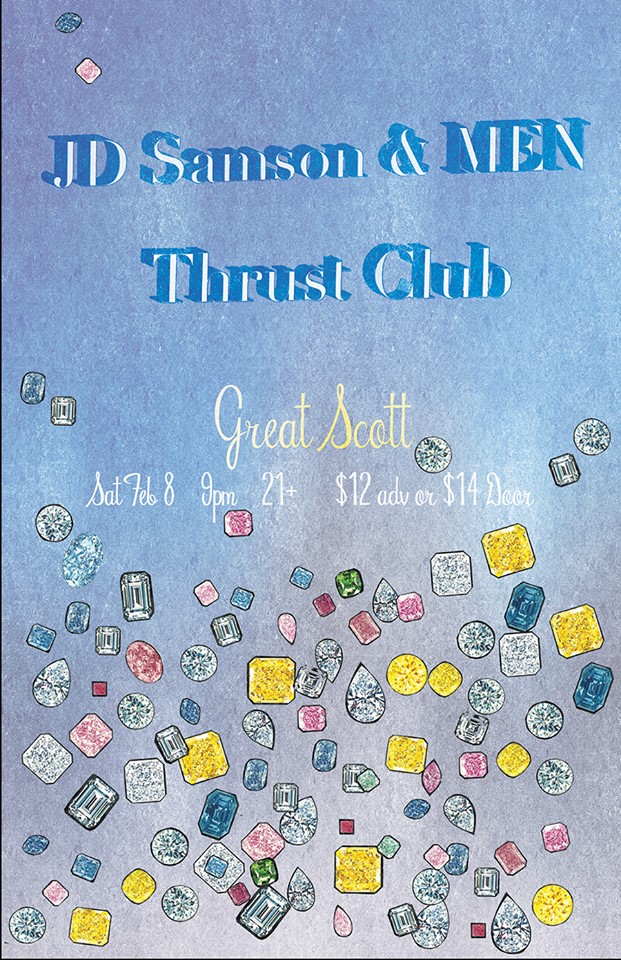
What advice would you give to a woman thinking about starting a band or learning an instrument?
Bethany: Do it. Just get out there and do it. Don’t worry about whether or not you’re good or bad or not sounding the way you want to. Get involved in GRCB/LRCB. You will meet so many inspiring women, even if you just come to an event. Don’t let anyone tell you that you can’t, either.
Bonnie: You don’t have to lock yourself in a room until you’re perfect before you start performing. Just get out there. As for the people you form a band with, just go with your gut. Have patience with yourself when you’re struggling on the learning curve. If there is someone at a show you’d like to emulate, go up to them and talk to them. Most people in bands are just regular people and they’ll be friends with you. Blab nonstop about what you’re doing. Write to Thrust Club. We’d love to book a show with you.
Seek out spaces where you truly feel like anything goes. If you can swing it, get your butt to Ladies Rock Camp. It is both the most fun and the most empowering thing I’ve ever done. If you can’t afford it, volunteer for them. They still need volunteers for the Girls’ sessions in June and July. If that’s not possible, go to a GRCB-affiliated event and talk to everyone; we’re a friendly bunch. We got really advice at Rock Camp that I often think of to this day. One of Thrust Club’s band coaches, KJ Parish, was a taskmaster extraordinaire that weekend, and she said, “Being in a band is all about making decisions and moving on.” Just keep at it. Another bit that stuck with me is when Angela Sawyer of Weirdo Records told us something along the lines of, “It is your job as a musician to be as yourself as you can possibly be.” I think back to that one whenever I start to feel inadequate or like I ought to affect more of a persona or look better onstage.
Sally: I would say just go for it. Get involved with Girls Rock Campaign Boston to meet other female musicians and help inspire girls. If that’s not available, go see and support other bands and get to know them. And if there’s some little gremlin on your shoulder saying you’re not good enough at your instrument or you’re too old tell it to shut the fuck up.
JC: JUST GO FOR IT!!! Attend a rock camp session, meet some ladies, go to all the rock shows, meet some more ladies, practice your instrument, sing in the shower or in front of the mirror, and don’t ever be embarrassed or let anyone tell you that you can’t do something
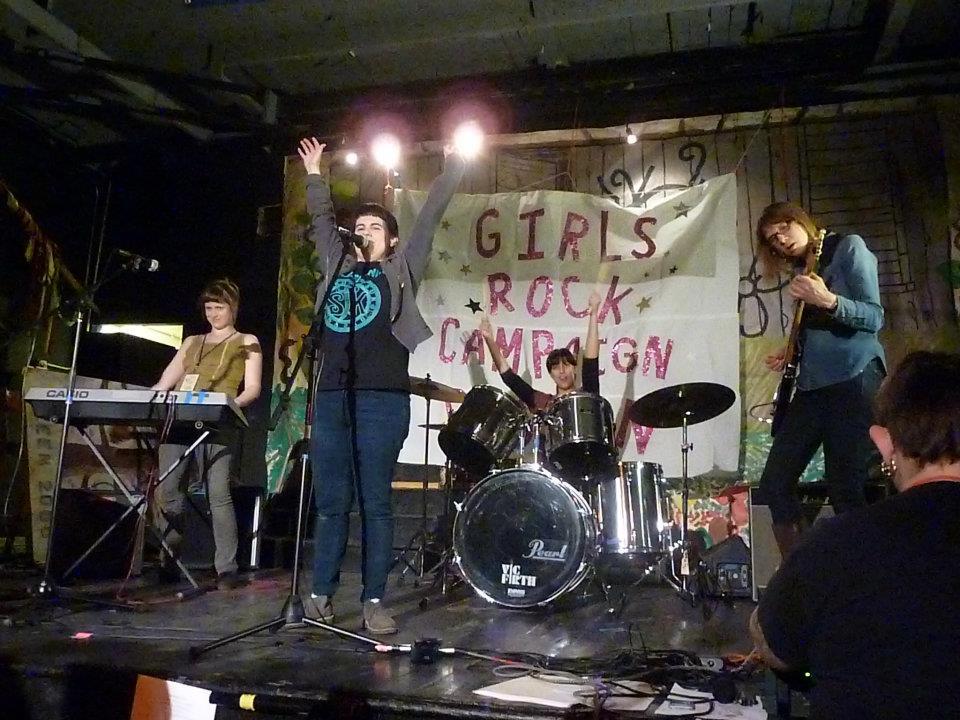
Are there any other current or former bands you would like to see featured by QWIMB?
Bethany: Well, Sleep Crimes DOES have the Improper Bostonian’s Most Eligible queer woman banging the skins 😉 Viva Gina is a fucking force of nature, I would like to see them featured everywhere.
Bonnie: Sleep Crimes. Haven’t you heard that their drummer Jasmine Hagans is the most eligible lesbian in Boston?!
Sally: Any of the above-mentioned bands who haven’t been featured. Also others we haven’t played with including Unstraight and Wet Dress.
JC: Definitely loved the features on Fur Purse and Shepherdess.





